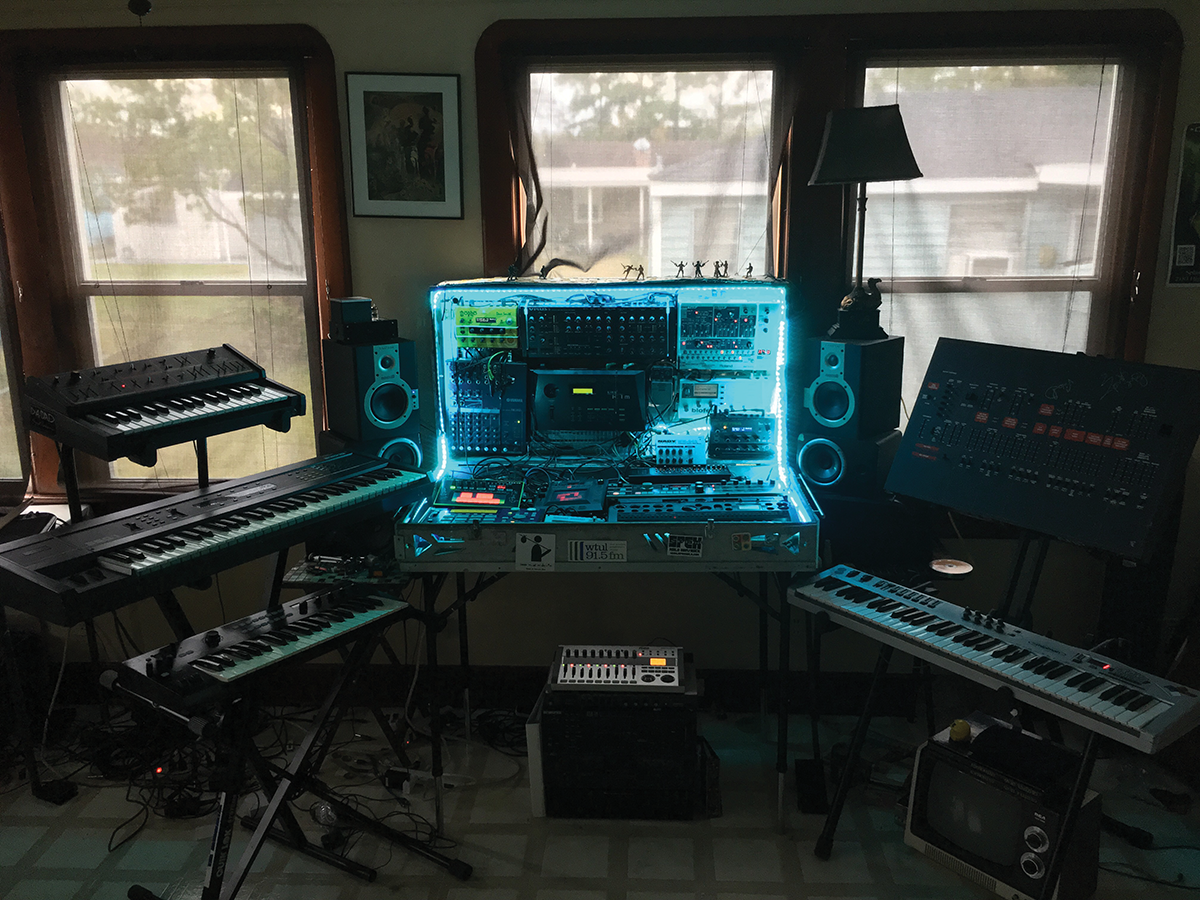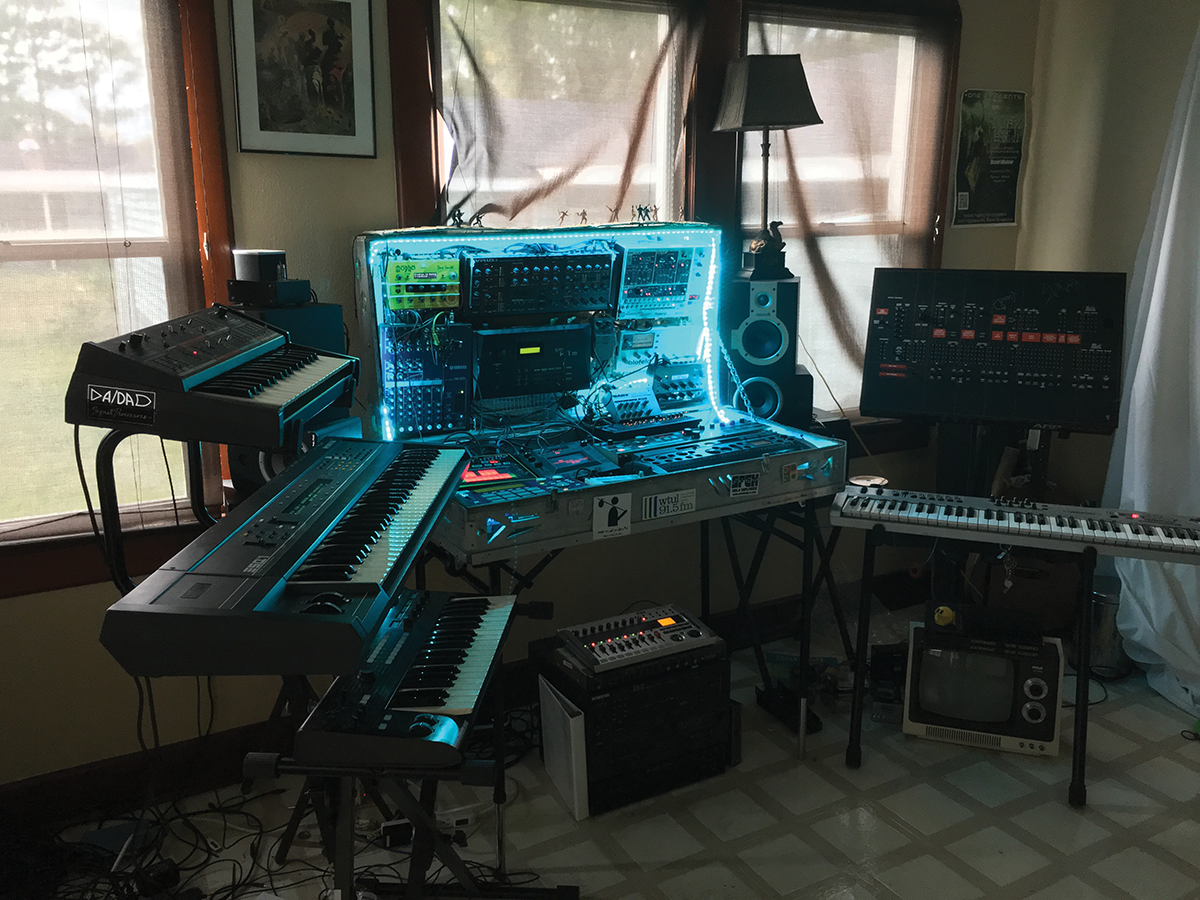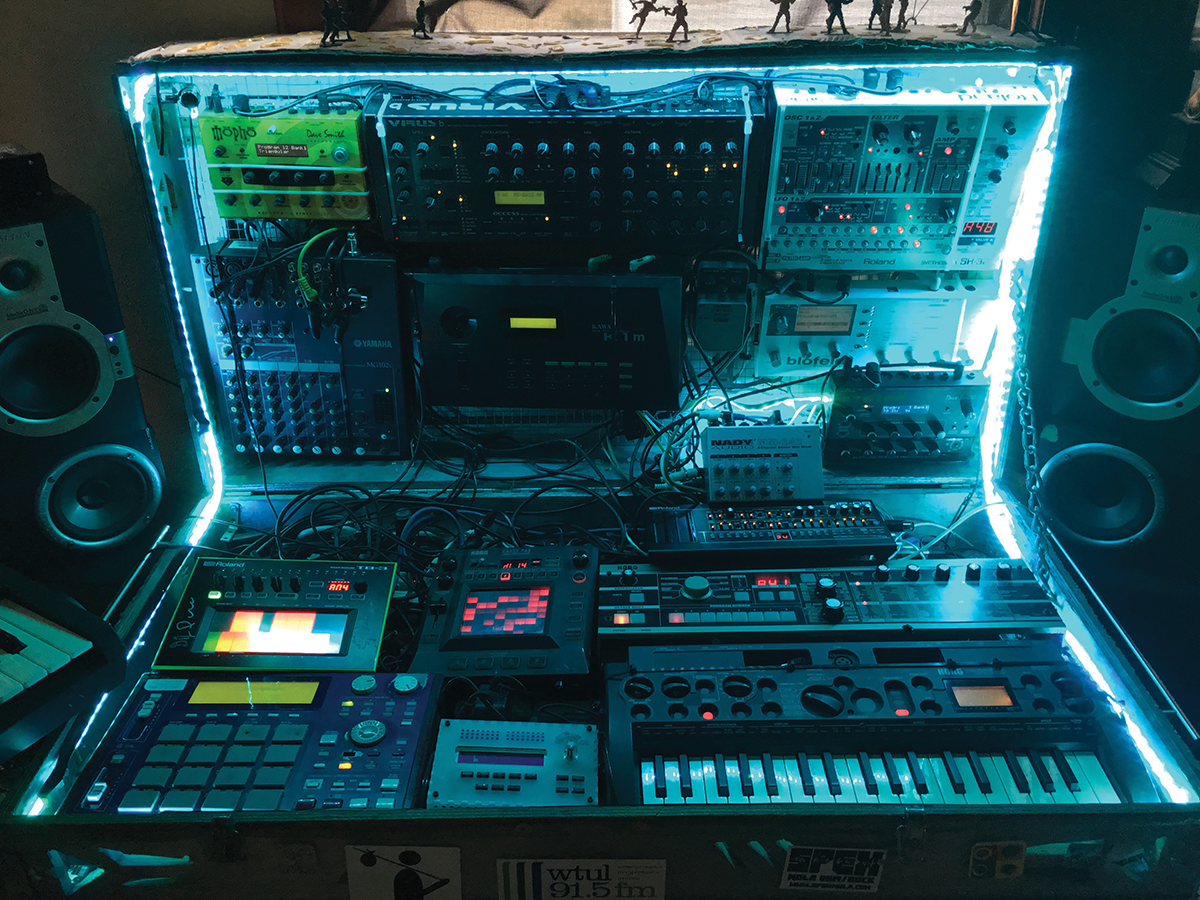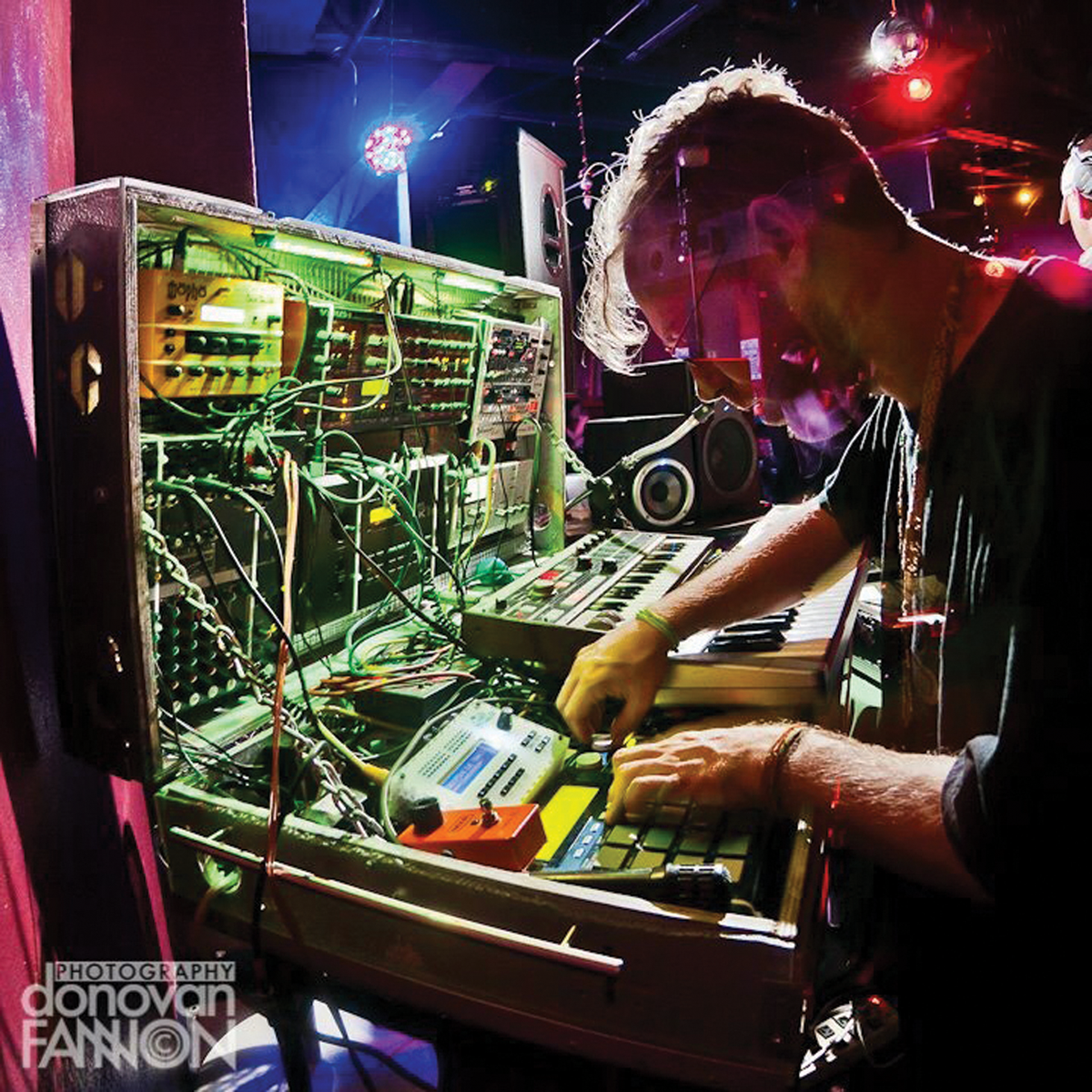Studio Interviews: Oscillation Communications
This time it’s a bit of a strange one, we’re talking to the owner of a studio in a suitcase, and a well-lit one at that. Oscillation Communications tell us about one hell of a unique music making approach… MusicTech: Tell us about your studio? Ras David Fishe: Oscillation Communications is based in New Orleans, […]

This time it’s a bit of a strange one, we’re talking to the owner of a studio in a suitcase, and a well-lit one at that. Oscillation Communications tell us about one hell of a unique music making approach…
MusicTech: Tell us about your studio?
Ras David Fishe: Oscillation Communications is based in New Orleans, and it’s a home studio, with occasional pro work/projects.
MT: Give us a run down of the gear in the studio…
Akai MPC1000; Dave Smith Instruments Mopho and Tetra analogue synthesiser modules; Access Virus B desktop synthesiser; Roland SH-32 desktop synth, TB-3 Touch Bassline, JP-08 module and JX-10 synth; Waldorf Blofeld desktop synth; Korg microKorg (now cut down into a keyless module); Korg microSampler, Kaoss Pad KP3 and R3 Synth/Vocoder; SammichSID synth module (it uses two SID MOS 8580R5 chips – the same ones used in a Commodore 64 – for 8-bit video-game-type sounds and beats); Kawai K1m desktop synth; ARP Avatar synth; Moog MG-1 synth; Ensoniq ESQ-1 hybrid synth; Zoom R24 and H2n recorders.
The MPC1000 is my main sequencer and sampler and enables a lot of improvisation during shows, as does the KP3 Kaoss Pad. Together, as a whole, my all-hardware setup makes for plenty of live synthesis and modulations, dependent on what I and the crowd are feeling. In the studio, it provides a wide range of possibilities for whatever sounds I am attempting to wrench from my mind, be it analogue, digital or hybrid based.
We love the case, the lights, and indeed, the plastic soldiers…
MT: Which DAW and why?
When I record, I mostly use Pro Tools, for its streamlined, professional quality. When I might occasionally use a synth plug-in or dedicated program, it’s mainly in a sampling capacity, so creating a sound or percussion that goes directly back into my hardware.
I love where some of these virtual synths and suites are going – things like Korg’s Gadget – and on a larger scale, Ableton is great, obviously. But there’s something more direct and individual sonically about my hardware that always beckons me forth – different D-to-A converters and components inside of them that makes the distance from my mind to my hands to the speakers more direct and also more diverse. But really, I love it all, so I say: use it all. There are creative tools for sound all around us, now more then ever.
A close up said case
MT: Favourite gear?
I love my MPC because it’s a great creative unit, with or without synths connected to it. After you learn and create on a powerful unit like this for a while, you can really fly around on it, and just like any great synthesiser design, it can push you to new territories as you push it –discovering styles and vibes that you had never considered before, which makes for great fun and keeps things interesting.
MT: How much time do you get to spend in the studio each week?
About 15 to 25 hours, depending on my live-show schedule, studio projects or time set aside for family.
MT: How do you use your studio?
I mostly track everything into my Zoom R24 or direct into Pro Tools, tracking projects or performances as separate tracks all at once and then going back and arranging track ideas and pieces into whole concepts.
I work with local DJs, musicians and solo artists, sometimes for mutual creative sessions or by myself when inspiration hits, which is constant.(Like a lot of your readers and other synthesists, I always have sounds and music in my mind – sometimes it’s a race to get home and capture them.)
Often I will walk around in the French Quarter here in New Orleans and record sound environments or drifting music and sounds that are in the air with my Zoom H2n and build concepts around them as well.
MT: What’s next on the Oscillation Communications shopping list, gear-wise?
I’m really excited to see what this new standalone MPC will be like. We may witness a fight to the death between it, the Pioneer Toraiz and the Elektron Octatrack for
the next chapter in hardware sampling/sequencing.
MT: Dream gear?
Probably a wall of Buchla gear. I love all of the new Eurorack gear and to have a music easel and a cache of modules would be grand. I’m a tape-echo fiend, too.
Ras takes the case out live – here he is in action (photo by Donovan Fannon)
MT: Any advice for aspiring producers and studio owners?
I think it’s important to always remember the core reasons for your passions in whatever you do in your studio, and to also look for it in the fellow artists and producers that you work with.
What is their artistic voice in the project? What is yours? Styles change and that’s great, but never close yourself off from learning and growing, regardless of style. Read old gear manuals (even if it’s gear you will never acquire), study techniques and apply them in your environment, no matter if all you have is a beat-up old two track. There is knowledge and strength lying all around us.
Let’s support each other more – we are a creative global family, so check your and anyone else’s ego at the door and let’s modulate!
Oscillation Communications – Information
Interviewee: Ras David Fishe
Contact: echotrails303@gmail.com


